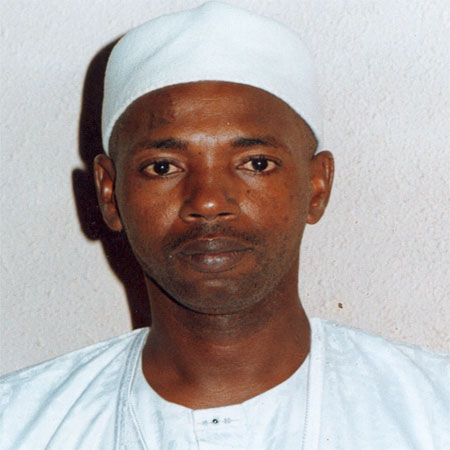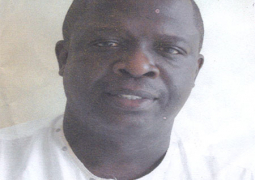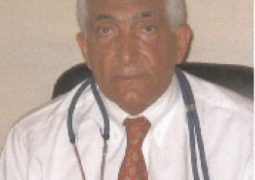
Vision and Mission
We the undersigned are compelled by the dictates of national interest and posterity to commit ourselves to the type of change that will place the country right into the hands of the Gambian people after 41 years of Republican existence.
The concentration of power in the hands of the executive and the constant amendments of the constitution to erode the functioning of a genuine multiparty system, especially the second round of voting and its replacement with first past the post, which makes the opposition parties to be disadvantaged by their share numbers, makes it prudent for the opposition to establish a grand alliance not to seek power for its sake or effect change for its sake but to empower the people to build a durable democracy that would enable them to condition leaders to focus on their needs and aspirations.
The united front is designed to usher in standards of best practice in governance and democracy, consolidate a common culture of respect for fundamental rights and freedoms so as to build an unshakeable democratic foundation on which the people could rely to hold a genuine multi party contest and thus enable the people to make their choice of parties by comparing their principles, policies, programmes and practices.
The United Front holds that public power is not secure in any individual’s hands unless it is subjected to scrutiny and control and is restrained by just legal or constitutional instruments, Independent and Democratic oversight institutions and an empowered population organised in civil societies like Unions and other associations whose members enjoy the fullest freedom of speech and association in order to safeguard their liberty and prosperity.
The United Front, therefore, is designed to bring into force a transitional government that would foster greater National Unity transcending tribe, religion, gender, place of origin, birth, disability or any other status and put in place a governance programme based on the core values of good governance and democracy characterized by transparency, accountability, popular participation, respect for fundamental rights and freedoms, the upholding of the rule of law ,respect for and tolerance of political diversity and full commitment to conserve, enlarge and protect freedom of information and freedom of the media.
The Transitional Programme
The Transitional Programme comprises
1. Convention to select a presidential candidate and a running mate
1.1 The United Front shall hold a convention on a day and time unanimously agreed by all member parties
on the basis of 10 delegates per region per party or any other means of choosing 70 delegates that is acceptable under a given party’s constitution.
1.2 An organising committee comprising a representative from each party shall be appointed by the executive or central committees of the member parties to be responsible for putting the logistics in place to hold the convention
1.3 Each party that wishes to put up a candidate or any Independent person who wishes to be a candidate for selection by the Convention shall send a letter to the organising committee and copy it to all member parties, no later than a day before the holding of the convention.
1.4 A public announcement shall be made of the date of and place for the convention.
1.5 Each Independent Candidate is entitled to two delegates, one to propose his or her nomination and the other to give secondment to the motion.
Each party candidate shall be nominated by the party and the nomination shall be seconded by another party member who is a delegate.
1.6 Each delegate shall have one vote and shall be entitled to cast that vote in secret.
1.7 No person shall be selected as a presidential candidate on the first ballot unless he or she has more than fifty percent of the votes validly cast at the convention.
1.8 Should no person have fifty percent of the votes in the first round, the two persons who have the highest and second highest number of votes shall participate in the second round.
1.9 In the second round of voting the person with the highest number of votes would be the presidential candidate and the other contestant would be the running mate.
1.10 The president shall serve one five year term and at the end of the five years shall not seek a second mandate or show preference for any presidential candidate in the next following elections.
1.11 Should only one person’s candidature is presented for candidature the delegates will cast a yes or no vote. If the yes vote carries the day the person will stand elected in the first round . If the no vote is the majority the convention would adjourned and allow room for the filing of other application for candidature
2. Establishment of shadow Cabinet
2.1 There shall be a shadow cabinet comprising those who participated as contestants to become the presidential candidate of the United Front
2.2 Each party is entitled to select a number of competent members to become part of the shadow cabinet.
2.3 Any candidate of the United Front elected president shall appoint his or her running mate Vice President and shall form a Cabinet from members of the shadow Cabinet among others
2.4 The post of Minister of Finance shall be filled by a competent specialist in matters of finance in consultation with the chamber of commerce and Industry
2.5 The post of Attorney General and Minister of Justice shall be filled by a competent person appointed in consultation with the Bar Association
2.6 The post of Minister of Information shall be filled by a competent person appointed in consultation with the Gambia Press Union.
3 Reform programmes for the Transition
3.1 Constitutional and Legal Reform
Constitutional and legal reforms shall be instituted by establishing a Constitutional Review Commission within a month of the assumption of office by the President and charge it with the responsibility of conducting a nationwide sensitization and consultation with a view to receive proposals to amend the constitution so as to restore the second round of voting, ensure the security of tenure and Independence of members of the National Assembly, the judiciary, the Independent Electoral Commission, the Public Service, restore and upgrade the autonomy of Local Councils and repeal all laws which encourages executive interference, restore Chieftaincy and Alkaloship elections, repeal all laws which hinder the exercise of fundamental rights such as the enactments on public meetings, processions or Public order in general , sedition, false information and ensure the enactment of a freedom of Information Act.
3.2 Institutional Reform
1. Reform of the civil service to ensure professionalism and the performance of duty to meet the expectation of the people in an accountable, efficient and effective manner without any fear of being subjected to any discrimination, harassment, victimization or indignation.
2. A Special Service Commission shall be established to facilitate the appointment of members of the Independent Electoral Commission, the Office of Ombudsman and other oversight institutions.
3. Professional Service Commissions such as Judicial, Teachers, Nurses and other services shall be established to conduct appointments and regulate conditions of service.
3. Executive reforms shall be undertaken to make the cabinet more responsive to standards of best practice established in implementing laws, orders and policies designed to guide the operation of the various departments of state and further make it a practice for cabinet members to face the media to explain the policies of government and receive opinions on the impact they are making on the population. Effect total separation between party and state
4. National Assembly reforms shall be instituted to amend provisions that enable the President to dissolve the National Assembly or empower a party to remove a national assembly member by virtue of party disputes. It shall strengthen parliamentary oversight, and safeguard the immunities of parliamentarians against executive encroachment.
5. Judicial reforms shall be undertaken to ensure that there is no executive presence or manipulation of the Judicial Service Commission. All district tribunals and adjudicating bodies shall be under the judiciary and the appointment and removal of magistrates and arbitrators in courts shall be done by a separate judicial service commission that is completely independent of the executive. Schemes of best practice shall be incorporated to ensure speedy justice.
6. Reform of prisons shall be effected to ensure that they are transformed into correctional rather than punitive institutions. Community service shall be given primacy over custodial sentences; prisons shall be organized in such a way that they serve as conducive environment to rehabilitate prisoners. Maximum security wing of prisons shall cease to be detention centres. Prison administrators shall not be subjected to any other dictate but that of the law and best practice in prison administration.
7. Reform of police, the military and security services shall be undertaken to promote the performance of duty on the basis of law and best practice. Measures shall be put in place to protect such personnel for non compliance with unlawful instructions especially politically motivated ones.
8. Establishment and consolidation of Independent Oversight institutions like the office of Ombudsman to look into employment matters in both the public and private sector, women and children affairs, the disabled, pensioners and human rights. Such commissions shall be empowered to receive reports and conduct investigations on complaints of violation or non compliance with laws and international conventions designed to protect the rights and interests of given categories of people in society who may be more vulnerable to discrimination or marginalization.
9. Separation of the function of Attorney General with the function of Secretary of State for Justice and Human Rights. The office of Attorney General shall serve as a state function free from any political influence so that any intervention by the Attorney General in the judicial process will be motivated by the pursuit of the interest of Justice. The Department of State for Justice and Human Rights shall oversee the incorporation of all international, continental and regional conventions into domestic laws to promote economic, social, political and cultural rights and ensure that they inform policy and practice in state administration.
10. Promote popular participation in decision making by developing partnership with civil society organizations and empower them to articulate and protect the concerns of farmers and workers, the disabled, women, children, pensioners, the elderly, youth, owners of income generating enterprises, members of the chamber of commerce, media practitioners and those living with HIV/Aids and other categories or interest groups.
11. Ensuring the protection of the media to receive and give information and hold all state organs accountable and responsible for their manner of service to the people. The state media shall be opened up to convey divergent views. The media shall be encouraged to hold all public service delivery institutions and elected officials accountable to the public. The media practitioners shall pioneer the establishment of a self regulating media commission to promote professionalism, ethical conduct and standards of best practice in journalism.
12. Promotion of the prestige and image of the country internationally by being a signatory to the Africa Peer Review Mechanism and accede to all continental and international conventions that aim to encourage the separation of powers and ensure the checks and balances in state administration that can guarantee transparency, accountability and commitment to the public interest
Read Other Articles In Article (Archive)



